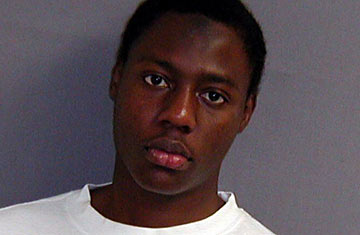
Umar Farouk Abdulmutallab is accused of trying to blow up Northwest Flight 253 from Amsterdam to Detroit on Christmas Day
Umar Farouk Abdulmutallab's failed attempt to bring down a jetliner over Detroit on Christmas Day has helped to ignite a political battle over how best to handle and question detained terrorist suspects. The debate has brought attention to a specialized interrogation unit that the Obama Administration announced with great fanfare last August but that was not used in the "Undie-bomber" case — a situation that has become additional fuel for criticism.
The High-Value Detainee Interrogation Group (HIG) was intended to replace the Bush Administration's intelligence-gathering procedures for captured terrorist suspects. One of President Obama's first acts after taking office was to suspend his predecessor's controversial detention and interrogation practices, and convene a task force to recommend new ones. When the Department of Justice announced its findings on Aug. 24, among the proposals was the creation of HIG, a mobile team of experienced interrogators, linguists, al-Qaeda experts and others would swing into action to question captured suspects. Intended for deployment overseas, according to Director of National Intelligence Dennis Blair, HIG's purpose is to help higher-ups decide whether or not a detainee should be treated as a case for prosecution in federal courts, as well as to extract useful intelligence.
However, HIG was not activated when Abdulmutallab was taken into custody, as Blair admitted at a Senate hearing in January. He said he was never consulted about deploying the interrogation unit when the young Nigerian was arrested in Detroit; the team of intelligence experts was never summoned. "We should have automatically deployed the HIG," he said. "We will now." More confusion followed: the next day, Blair issued a clarifying statement revealing that the unit wasn't even fully operational.
Intelligence and law enforcement officials insist that while the HIG has not been finalized, intelligence units are deploying to interrogate suspects — including Abdulmutallab and David Headley, who was arrested in Chicago last year and has been linked to the Bombay massacre of 2008. At a hearing before the Senate's Select Intelligence Committee on Tuesday, FBI Director Robert Mueller said that HIG-like teams had been deployed since the fall, and CIA Director Leon Panetta said agency interrogators have accompanied them. This raised more questions whether the unit was functional. "It's moving along," was all Blair said. When committee vice-chair Christopher "Kit" Bond, the Missouri Republican, asked whether HIG would be deployed if Osama Bin Laden were captured, Blair responded. "I would very much hope that the HIG would interrogate him and squeeze all the information out of him." Before reading Miranda rights to bin Laden? Bond asked. "I'm not going to talk about that," Blair said.
After the Christmas Day incident over Detroit, the decision to interrogate Abdulmutallab not as an enemy combatant but as a civilian — he was read his Miranda rights — was made by Attorney General Eric Holder. After weeks of political sniping, the Department of Justice on Wednesday released a sharply worded letter from Holder to Senate Minority Leader Mitch McConnell defending the decisions made in Detroit, saying that they were "fully consistent" with policies and practices of the department, the FBI and the government as a whole. Taking full responsibility for the decision to hold and indict Abdulmutallab in the federal court system, Holder said that the President and senior national security officials discussed and rejected putting Abdulmutallab in military custody.
"The criminal justice system has proven to be one of the most effective weapons available to our government for both incapacitating terrorists and collecting intelligence from them. Removing this highly effective weapon from our arsenal would be as foolish as taking our military and intelligence options off the table against al- Qaeda, and as dangerous," Holder wrote. Separately, administration officials now also report that Abdulmutallab, who stopped talking after about 50 minutes in custody, has recently begun providing new information to interrogators after his family was brought to him from Nigeria.
Despite the apparent progress of the interrogation, the unavailability of HIG has inspired fresh rounds of criticism from national security hawks. "Why wasn't his group brought in once this terrorist was taken into custody?" McConnell declared on the Senate floor. Former CIA Director Michael Hayden wrote in an op-ed last Sunday that while the Administration was still unprepared to question terrorists, interrogations of CIA personnel over Bush-era abuses are "well underway." William Burck, a former deputy counsel to President Bush, says the idea of the HIG is "fabulous" — but it needs to be implemented. The fact that it hasn't been a year after the Obama Administration scrapped the Bush policies is "shocking," he says. "Unfortunately, I think it plays into the view that the Administration doesn't take these issues as seriously as it should."
